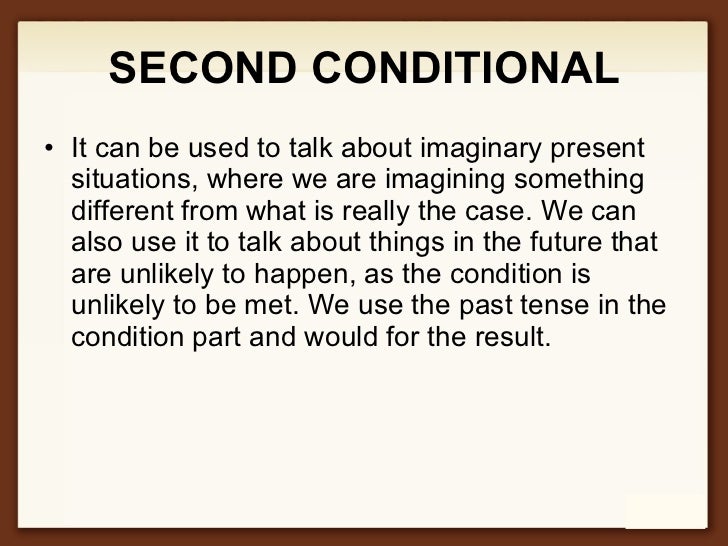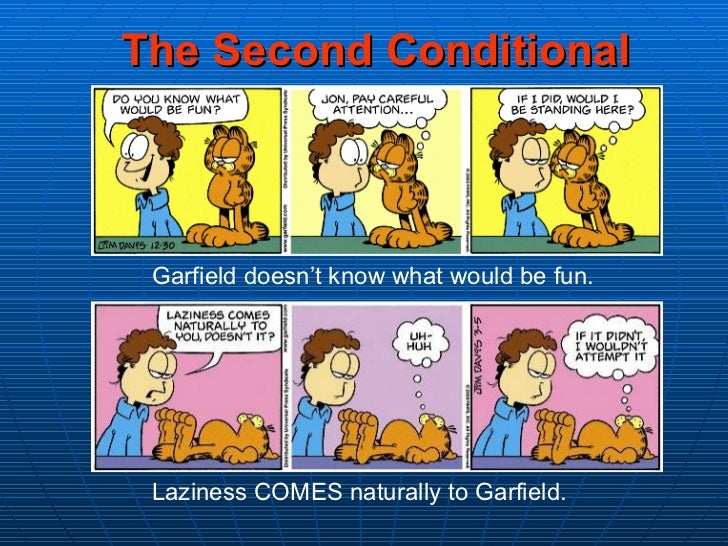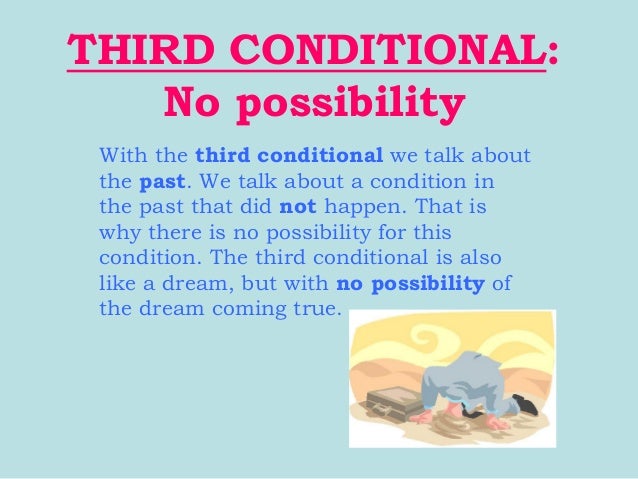UNIVERSIDAD NACIONAL DE CHIMBORAZO
Facultad de Ciencias de la Educación, Humanas y Tecnologías
Carrera de Ingles
WHAT IS CONDITIONALS?
What are conditionals in English grammar? Sometimes we call them 'if
clauses'. They describe the result of something that might happen (in
the present or future) or might have happened but didn't (in the past) .
They are made using different English verb tenses.
"Condition" means "situation or circumstance". If a particular condition is true, then a particular result happens:
There are four kinds:
"Condition" means "situation or circumstance". If a particular condition is true, then a particular result happens:
- if y = 10 then 2y = 20
- if y = 3 then 2y = 6
There are four kinds:
- The Zero Conditional:
(if + present simple, ... present simple)
If you heat water to 100 degrees, it boils.
- The First Conditional:
(if + present simple, ... will + infinitive)
If it rains tomorrow, we'll go to the cinema.
- The Second Conditional:
(if + past simple, ... would + infinitive)
If I had a lot of money, I would travel around the world.
- The Third Conditional
(if + past perfect, ... would + have + past participle)
If I had gone to bed early, I would have caught the train.
WE WILL LOOK FOR EACH CONDITIONAL BELONG THIS PAGE HOPE THIS EACH SUMMARIES WILL HELP YOU TO IMPROVE THE USES OF IT.
.jpg)






